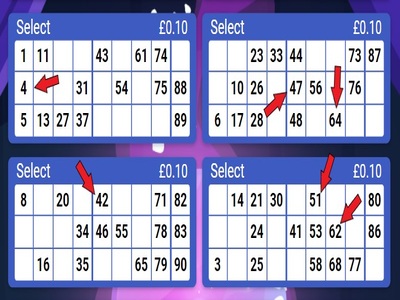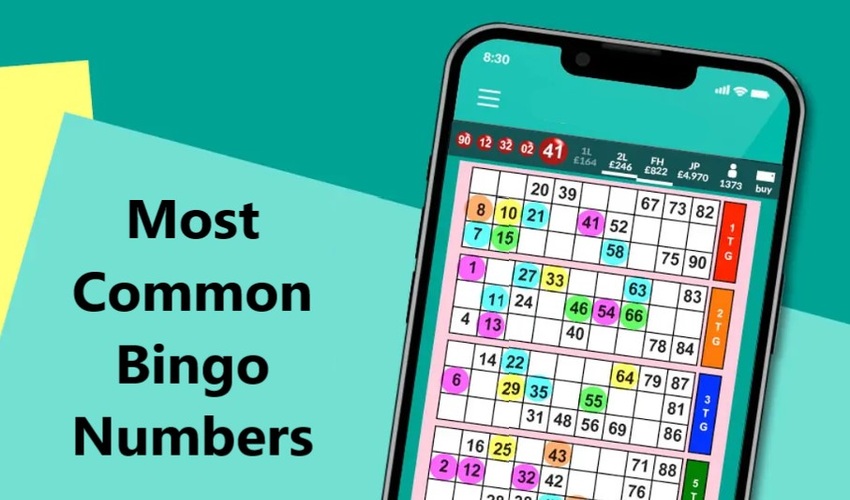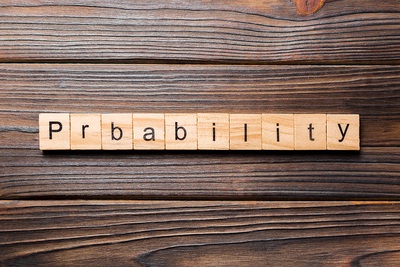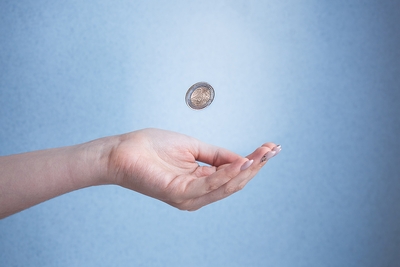 You know how there are always one or two people at your local bingo club who seem to win more often than everyone else?
You know how there are always one or two people at your local bingo club who seem to win more often than everyone else?
It’s annoying, isn’t it.
Well, did you know that there are also certain bingo numbers which are called the most? As in, more often than all of the others?
You didn’t, did you?
It’s true though, and while it’s not quite so straight forward as saying “Number 23 is called more often than the others so it’s good to have that number on your card”, it does make you wonder why this happens.
After all, bingo is a game of chance, it’s random, and this makes it fair, safe, and fun. After all, no one can be ‘better’ than you at bingo, and no one can bully you out of a game, or have a higher chance of winning (per ticket, anyway).
All they can do is buy more tickets than you, but then they have spent more in the first place, so even if they do win, the amount they make is diluted.
The point here is that bingo is a fair and balanced game, and if that is the case, how can it be possible for some numbers to be called more often than others?
You’re about to find out.
The Most Common Numbers in Bingo

Before I go any further, I have to point out that it would be impossible to give an answer to this question that is true the world over.
In the same way that statistics about the UK economy don’t apply to the US economy, the studies that have been done into bingo numbers only account for the games that were monitored, so the answers could be very different if the same study was done somewhere else.
Saying that, there has been a study by one of the top bingo sites into which numbers came up most frequently in their games.
This means the games included were online bingo games, so the calls were decided by an RNG, although, even in live bingo halls they use an electronic system to draw the numbers so there’s not much of a difference there.
Anyway, the study found the bingo numbers that were called most often are as follows:
| Position | Bingo Number |
|---|---|
| First | 6 |
| Second | 4 |
| Third | 42 |
| Fourth | 62 |
| Fifth | 52 |
| Sixth | 51 |
| Seventh | 64 |
| Eighth | 81 |
| Ninth | 47 |
| Tenth | 57 |
This is for a 90-ball game, and included data from every single game played on the site from August 2020 until April 2021, which is a solid 9 months of stats amounting to what must be tens of thousands of games.
Interestingly, number 13 was one of the least frequently called numbers, which, considering the association with bad luck is quite a spooky coincidence. The number 6 came up more than 300 times more than the number 13, so it was quite a gap.
However, according to a community poll, the number 13 is actually the second favourite number of many bingo players, with number 7 claiming the top spot as it is considered lucky by lots of people.
Number 52 was the only number in the top ten favourite list which is also in the list of most common bingo numbers to be called, so perhaps Danny La Rue is still doing his best to get in front of an audience from the afterlife.
Although the results of the most common numbers only apply to that one specific site, it’s funny how many numbers there are with 4, 6 and 2 in them, isn’t it? In fact, five of the ten numbers called most often are made up of just these 3 numbers alone: 4, 6, 42, 62, and 64.
So, despite bingo being a fair game, there are undeniably some numbers that come up more often than others, even if the exact numbers that do vary from one bingo hall or bingo website to another.
As intriguing as this all is though, it doesn’t really count for anything, and here’s why.
Probability in Bingo
 I’m going to talk about slightly technically about probability here, and maybe throw in a little bit of maths too, but don’t panic, I’ll keep it simple.
I’m going to talk about slightly technically about probability here, and maybe throw in a little bit of maths too, but don’t panic, I’ll keep it simple.
In bingo, regardless of the game type (90-ball, 75-ball, etc.) each number has an equal probability of being called during each game. That’s easy enough to understand.
Probability is important to understand because bingo is a game of chance, so each ball is randomly drawn without a replacement, so even though the number of remaining balls gets smaller each time a new ball is drawn, the probability of the balls left in the bag being drawn stays equal.
For example, drawing number 86 doesn’t mean that the chances of drawing 87 next are any more or less likely than any other ball.
At the beginning of the game, each ball has a 1 out of 90 chance of being called first, which you could display as 1/90.
After the first ball is drawn though, there are only 89 balls left in the bag, so every single remaining number now has a 1 out of 89 chance of being drawn, or 1/89.
It’s the number on the left that is important, because it never changes, it will always be 1 in however many balls are left in the bag.
This idea spans across different games as well.
For example, if the number 23 is drawn in the first game, the probability of 23 being drawn again in the second game remains 1 out of 90 at the start, just like any other number.
It’s true that each number has a greater chance of being called as the game goes on, but because that is true of all remaining numbers at the same time, it has no impact on the probability.
For example, at the start of the game each number has roughly a 1.11% chance of being picked, then after the first ball is drawn, that increases to 1.12%, then 1.13%, then 1.14%, then 1.16% and on it goes.
The maths would be:
- 1 ÷ 90 x 100 = 1.11
- 1 ÷ 89 x 100 = 1.12
If there were only ten numbers left – which would be a rarity in itself – each remaining number would have a 10% chance of being drawn next, but the important thing is that the percentage chance would be the same for each number, even though that percentage had increased.
So Why Are Some Numbers More Common Than Others?
 It’s a fair question.
It’s a fair question.
If bingo is a fair and balanced game and the probability for each number being drawn is always the same at every stage, why do some numbers end up being drawn more often than others?
This is down to something called variance.
Although each number has an equal probability of being called, in practice, we see certain numbers being called more frequently than others due to the inherent randomness and variability in the game.
This isn’t unique to bingo; it happens with everything.
Think of a basic coin toss. Theoretically, heads and tails should each occur 50% of the time, in practice, there will be sequences where one outcome appears more frequently than the other due to random chance.
You would have to zoom right out to experience true probability play out, and look at such a huge data set it would be almost impossible to take it all in.
Basically though, the more games of bingo that are played, or the longer you stand there flipping a coin, the more accurately the results will reflect the mathematical probability of each number coming up, or of the coin showing heads or tails.
To sum it up, even though the chances of any number being called in bingo are always the same, in reality, some numbers will end up being more common than others.
